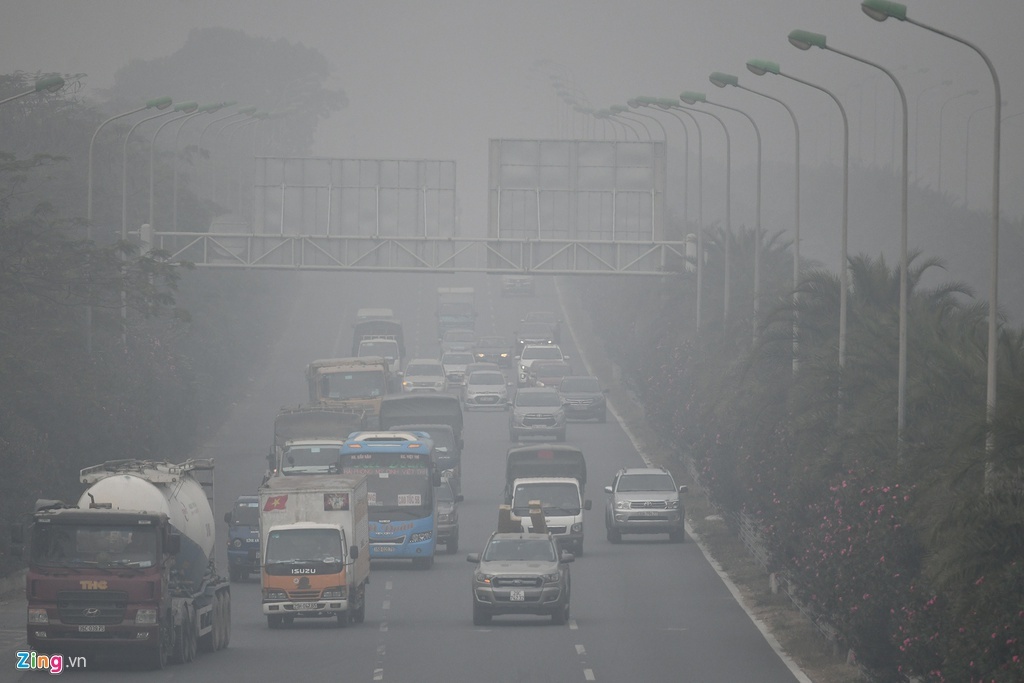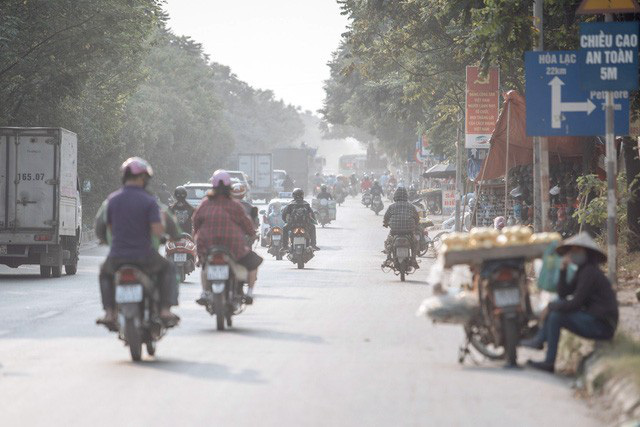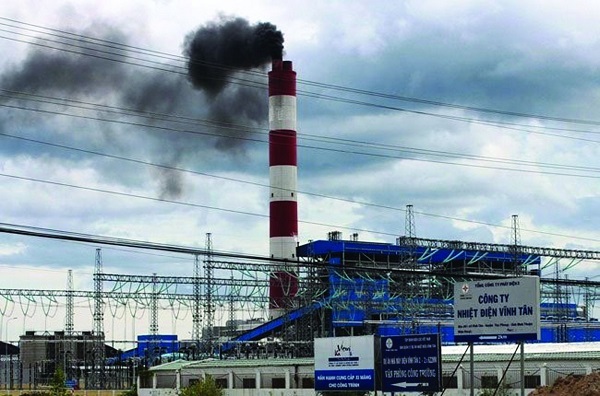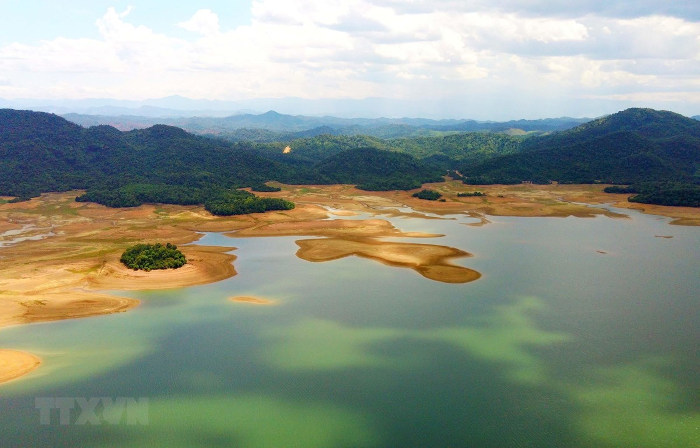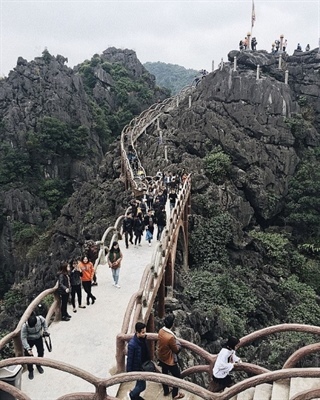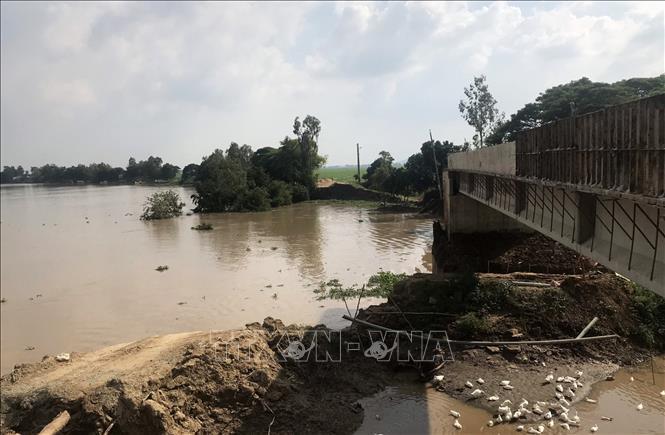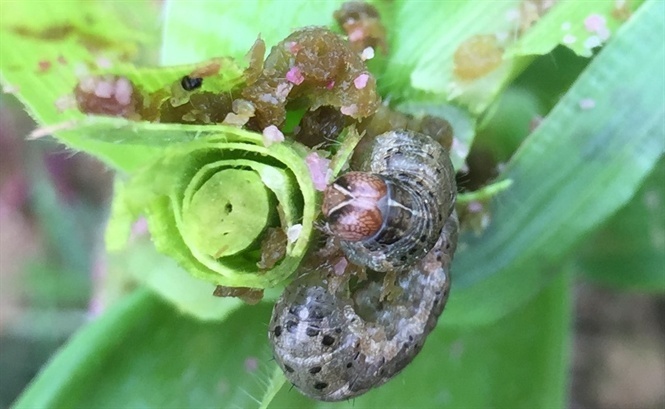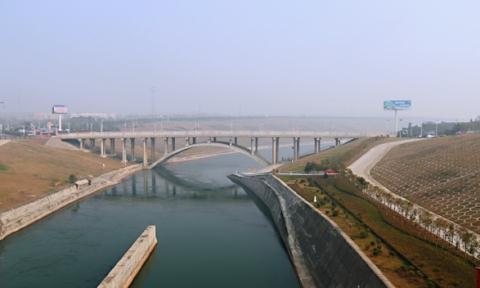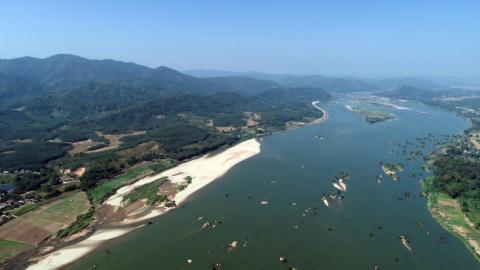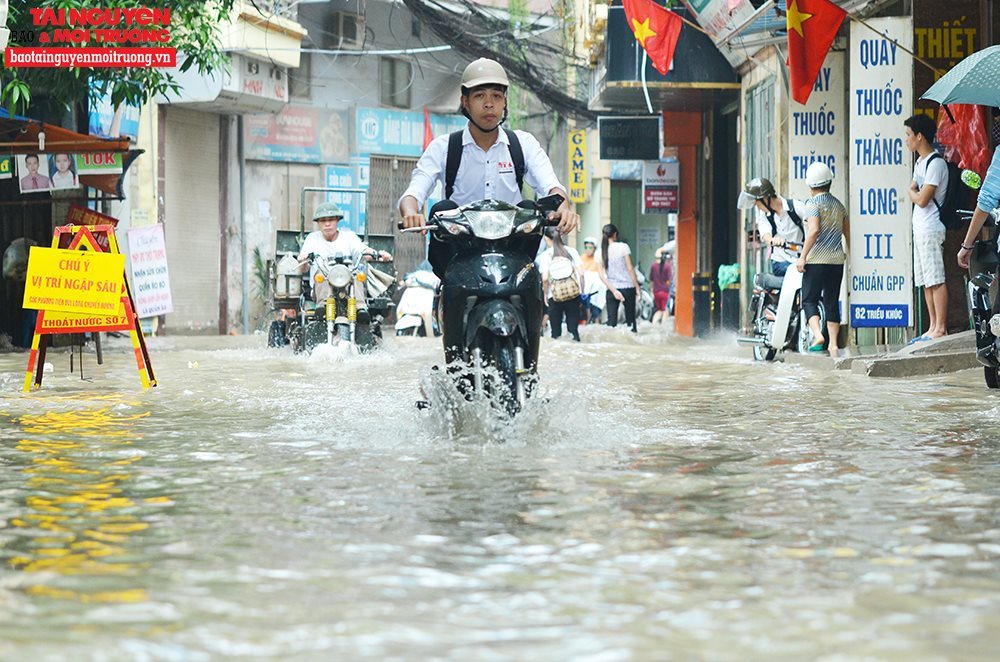- © Copyright of Vietnamnet Global.
- Tel: 024 3772 7988 Fax: (024) 37722734
- Email: [email protected]
Vietnam environment
Update news Vietnam environment
VN needs to become low-carbon economy to serve Paris Agreement: experts
 Vietnam must continue to take “concrete climate actions” to become a low-carbon economy and comply with the global Paris Agreement, a workshop heard in HCM City yesterday.
Vietnam must continue to take “concrete climate actions” to become a low-carbon economy and comply with the global Paris Agreement, a workshop heard in HCM City yesterday.
Dak Lak elephants need better protection
 Dak Lak is considered the country’s ‘elephant metropolis with 140 elephants, both wild and domestic. However, the number of ‘nanny’ elephants there is alarmingly low, which has affected the conservation of the local herd of elephants.
Dak Lak is considered the country’s ‘elephant metropolis with 140 elephants, both wild and domestic. However, the number of ‘nanny’ elephants there is alarmingly low, which has affected the conservation of the local herd of elephants.
Air pollution in Hanoi is worse on days with easterly winds
 The emission sources outside Hanoi make up two-thirds of PM2.5 fine dust concentrations in Hanoi, according to a survey released in October 2018 on quantifying pollution sources.
The emission sources outside Hanoi make up two-thirds of PM2.5 fine dust concentrations in Hanoi, according to a survey released in October 2018 on quantifying pollution sources.
HCM City to change way waste is classified at source
 The HCM City Department of Natural Resources and Environment plans to change the way solid waste is classified at source to suit treatment technologies, its chief has said.
The HCM City Department of Natural Resources and Environment plans to change the way solid waste is classified at source to suit treatment technologies, its chief has said.
Air pollution alarming, electric motorbike market heats up
 People have been advised to restrict outdoors exercise, close windows and doors, and wear protective masks to protect themselves from PM2.5 fine dust.
People have been advised to restrict outdoors exercise, close windows and doors, and wear protective masks to protect themselves from PM2.5 fine dust.
Thermopower plants, coal consumers and air polluters
 While developed countries are cutting the number of coal-fired thermopower plants for fear about environment pollution, Vietnam is still building more plants.
While developed countries are cutting the number of coal-fired thermopower plants for fear about environment pollution, Vietnam is still building more plants.
Green tourism: the way for Vietnam’s sustainable tourism development
 Sustainable tourism on the basis of green tourism is the path for Vietnam to go in the next 10 years, experts say.
Sustainable tourism on the basis of green tourism is the path for Vietnam to go in the next 10 years, experts say.
Vietnam among top 3 countries in number of oil spills
 From 1992 to now, 190 oil spills occurred in Vietnam, a major cause of sea pollution.
From 1992 to now, 190 oil spills occurred in Vietnam, a major cause of sea pollution.
Da Nang students make beach litter collecting machines
 A group of students in the central city of Da Nang have successfully made a machine for gathering rubbish on beaches.
A group of students in the central city of Da Nang have successfully made a machine for gathering rubbish on beaches.
VN aims for balance between heritage conservation and development
 Many cultural and natural heritage sites worldwide bear negative effects from climate change and development.
Many cultural and natural heritage sites worldwide bear negative effects from climate change and development.
Hanoi affected by waste from craft villages
 Dust and smoke from production workshops in Hanoi and neighboring provinces are one of the reasons behind the serious air pollution in the capital city.
Dust and smoke from production workshops in Hanoi and neighboring provinces are one of the reasons behind the serious air pollution in the capital city.
Landslides in Mekong Delta reach alarming levels
 Mekong Delta has weak vulnerable geological structure, so any event in nature or human activities will have great influence on the land.
Mekong Delta has weak vulnerable geological structure, so any event in nature or human activities will have great influence on the land.
Exotic species threaten native organisms
 Vietnam had to spend time and money to eliminate exotic creatures that attacked agriculture in 2019.
Vietnam had to spend time and money to eliminate exotic creatures that attacked agriculture in 2019.
Capital citizens in a fog over fight against air pollution
 Late on Saturday, the Ministry of Health, for the first time, released a list of 14 recommendations for coping with air pollution.
Late on Saturday, the Ministry of Health, for the first time, released a list of 14 recommendations for coping with air pollution.
Hanoi strives to preserve its lakes
 Each Hanoian should protect the living environment in general and the lake environment in particular with specific actions.
Each Hanoian should protect the living environment in general and the lake environment in particular with specific actions.
Ha Giang tries to protect snub-nosed monkeys
 The Tonkin snub-nosed langur (Rhinopithecus) is one of the rarest primate species in the world and is endemic to Vietnam.
The Tonkin snub-nosed langur (Rhinopithecus) is one of the rarest primate species in the world and is endemic to Vietnam.
China’s water diversion plan to northern region raises concerns
 China is not a member of the international Mekong River Commission (MRC), but the country must work with Mekong countries to solve the question on water security in accordance with the Lancang – Mekong Cooperation Mechanism, experts say.
China is not a member of the international Mekong River Commission (MRC), but the country must work with Mekong countries to solve the question on water security in accordance with the Lancang – Mekong Cooperation Mechanism, experts say.
Vietnamese scientists concerned about Mekong’s water color change
 The Mekong River Commission (MRC) needs to take responsibility for the solutions to deal with the river's color change, according to Vu Trong Hong, former Deputy Minister of Agriculture and Rural Development.
The Mekong River Commission (MRC) needs to take responsibility for the solutions to deal with the river's color change, according to Vu Trong Hong, former Deputy Minister of Agriculture and Rural Development.
Struggling with natural disasters in Vietnam's big cities
 With more populous cities and higher consumption levels, the impact of natural disasters is worsening.
With more populous cities and higher consumption levels, the impact of natural disasters is worsening.
Hanoi vows to eliminate honeycomb charcoal stoves
 The image of honeycomb charcoal stoves is common on many streets in Hanoi, from big streets to narrow alleys. However, it is the "silent assassin" that pollutes the air and seriously affects human health.
The image of honeycomb charcoal stoves is common on many streets in Hanoi, from big streets to narrow alleys. However, it is the "silent assassin" that pollutes the air and seriously affects human health.


